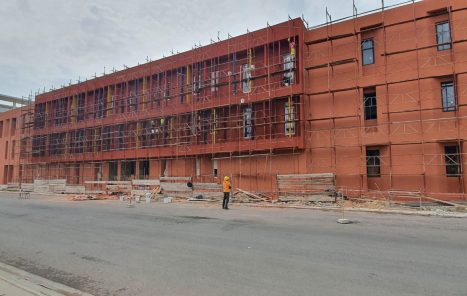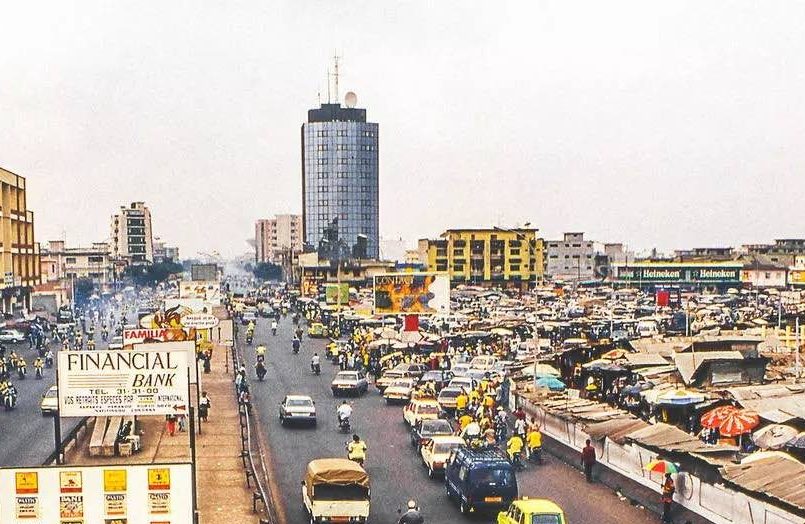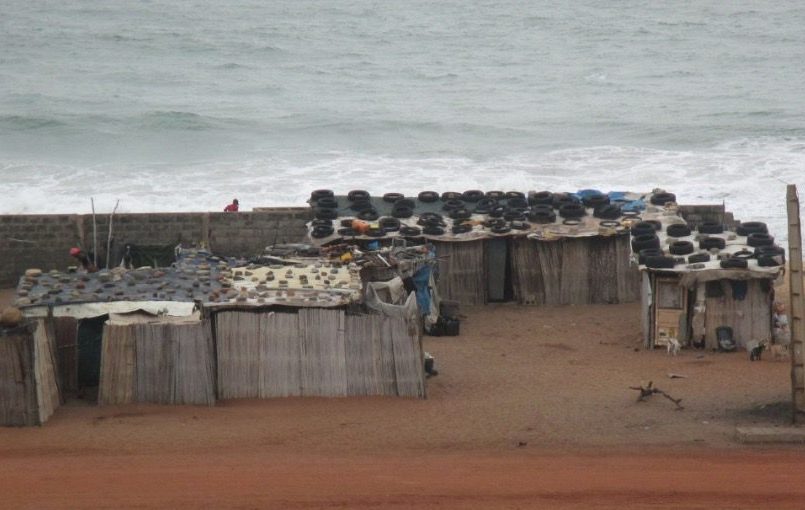Tech: with Sèmè-City, Benin enters the battle of African hubs
Cotonou is about to inaugurate the Sèmè-One building, a start-up incubator with regional ambitions.
Abdoul Halim Asouma, the person in charge of the construction of the Sème-One start-up incubator, wanted to make these 4,250 m2 entirely dedicated to research and new technologies, “an innovative and intelligent building”, with low energy consumption, and at the forefront of the largest African centers of this type.
The masons and painters are making the final touches, and in a few days, Sèmè-One will welcome entrepreneurs, “incubates”, and students specializing in new technologies: a political choice that makes sense in these times of global pandemic and race for innovation.
Technology hub for Africa
This new building is part of Sèmè-City, an economic development program initiated by the Head of State, Patrice Talon, which aims to make Benin a technology hub for West Africa, similar to the model of Kenya in East Africa, or Rwanda in the Great Lakes region.
Even before the finalization of this new project, the incubator had been housed for two years in premises annexed to the Presidency, and has already become a focal point for students, researchers, entrepreneurs, heads of small and large companies and even ordinary citizens who can come and work in the premises or attend conferences.
For its general manager, Claude Borna, Sèmè-City is “a unique place that accompanies and trains the talents of tomorrow, which promotes innovation made in Africa,” she explains to AFP.
A graduate of the University of California in Los Angeles, and McGill University in Montreal, this forty-year-old has long worked for large international groups, as a consultant in business strategy and innovation before returning to Benin in 2016.
“We come to Sèmè-City looking for collaborations, training, support to set up a project. The purpose is to solve problems with new methods,” she says with pride. “Young people often have lots of ideas but lack the framework and support.”
Anti-Covid task force
And with the spread of Covid-19 in Benin, all ideas are welcome, and they must be implemented quickly. Since April and the first reported cases, the “incubates” have been looking for solutions and setting up prototypes of objects or applications to slow the spread of the virus.
Thanks to funding from Unfpa-Benin (United Nations Population Fund), fifteen national and international organizations have joined together in a task force to fight the pandemic, with the ambition of finding solutions adapted to the socio-economic and cultural environments of Benin and West Africa.
At 29, Donald Tchaou and five of his friends have developed X-over, a mobile application to better respect social distancing and to trace the chain of contacts of an infected person. It is also equipped with a QR code scanner to check users before entering a building and is being put into circulation in the country.
“When we had the idea, we came to Sèmè-City, which provided us with all the necessary means. We also benefited from personalized coaching,” he says.
This tracking application is not unique in the world, but for reasons of cost and cyber-security, it is important that even the poorest countries must take their turn in these research phases.
Dismountable medical centers
But Sèmè-City is not just for geeks or young startups. Habib Mémé, in his thirties, studied architecture. Together with a dozen engineers and computer scientists, he has developed the “COM-finement” project, medical centers for treatment in case of epidemics (Covid-19, but also cholera, hemorrhagic fevers…), “that can be set up and dismantled quickly”.
The specificity of these centers is that they are “connected to each other, through a telemedicine system for use in rural or urban areas,” explains the developer. In Sèmè-City, “they directed us to potential donors and gave us very relevant technical feedback.
COM-finement has already seduced several West African governments, and several prototypes are in the experimental phase, says its inventor.
Financing, but also structuring, legislation, marketing development,… founding a start-up or transforming one’s ideas into a viable and profitable business, requires specialized supervision and solid partnerships. Armelle Dossa, 25 years old, specialized in “agri-tech”, is preparing a large-scale marketing project of organic vegetables. “If this framework had existed in Benin for ten years, we would have many young people in entrepreneurship and a lower unemployment rate,” she concludes.
Read the original article on jeuneafrique.com



